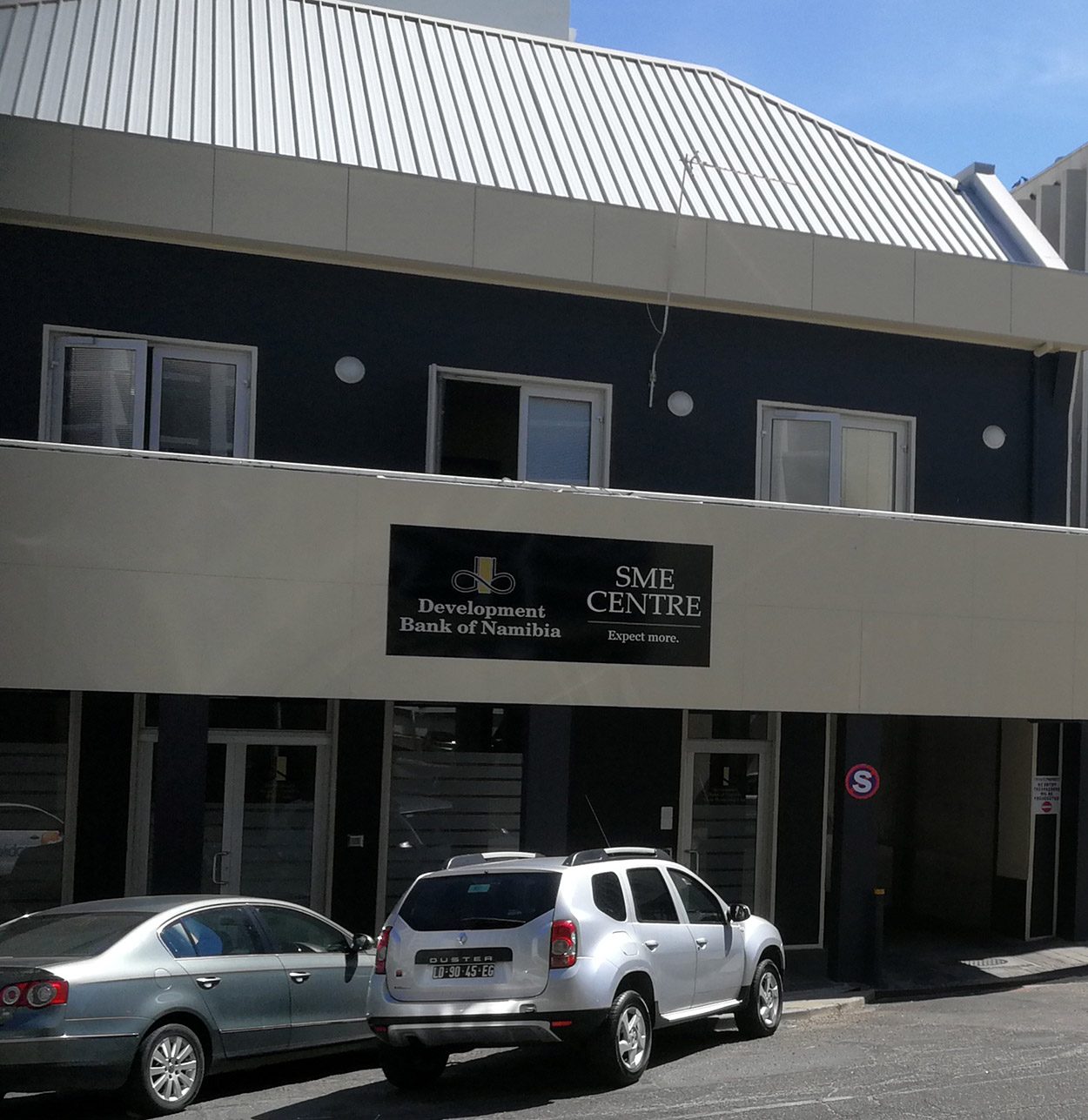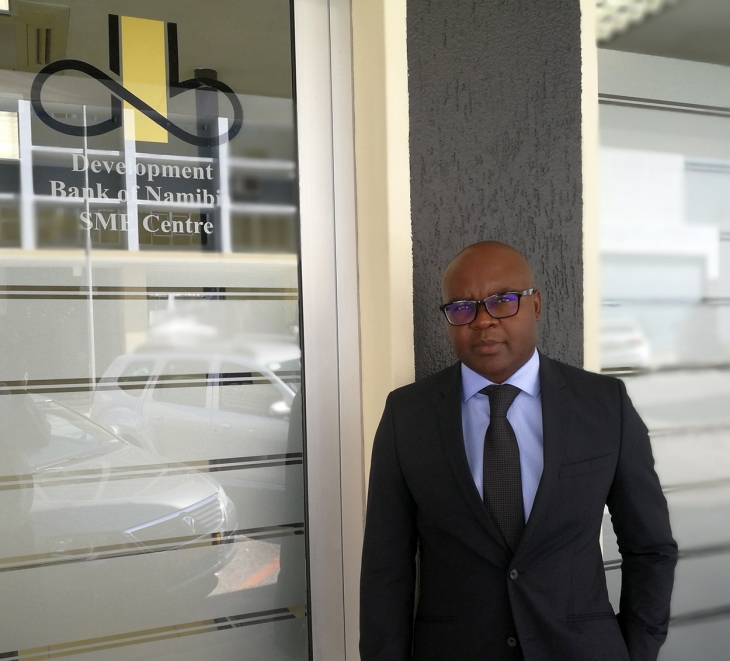 Call 061 290 8000
Call 061 290 8000 Click to mail us
Click to mail us FAQs
FAQs
Development Bank of Namibia opens Windhoek SME Centre, extends service to Walvis Bay, Ongwediva
Development Bank of Namibia (DBN) CEO Martin Inkumbi has announced that the Bank has opened its SME Centre in Windhoek, and that the financing function has been extended to its regional offices in Walvis Bay and Ongwediva. The SME Centre, he says, will bridge the gap in financing left by the closure of SME Bank.

Explaining the gap, Inkumbi says that while there is a financing ecosystem for SMEs in the commercial banking sector, there is a national imperative to finance SMEs that have lower levels of collateral availability, but still present a high degree of potential in terms of sustainability of the enterprise in spite of perceived risk. Perceptions of risk, he says, might emanate from lower collateral availability, but also from establishment in centres with lower population figures, rural areas, and in regions with lower economic activities.
Talking about DBN’s SME financing process, Inkumbi states that DBN’s operation bears no relation to SME Bank. Contrary to speculation, the Bank has no intention to operate in the retail banking field, and views itself as a pure development finance institution (DFI).
He continues to say that the Bank has a long track record of governance and due diligence in the field of SME finance, stretching back to shortly after the Bank’s inception, and this is now vested in the DBN SME Centre, to provide DBN with greater control in the form of a siloed operation, which due to its nature and relative risk, has intensive diligence requirements. Previously the Bank processed finance for infrastructure and larger enterprises alongside SMEs.
Talking about the day-to-day operation of the SME Centre, Inkumbi says that although the output can superficially be seen as finance for SMEs, the operation will be underpinned by several layers of support, particularly in the pre- application phase.
In the pre-application phase, the Bank particularly seeks to draw attention to the process of business planning. Without a realistic and achievable business plan, Inkumbi stresses, the applicant places herself / himself in a position of financial risk when borrowing. To this end, the Bank has developed a business plan content guide which will be freely available to potential borrowers. The Bank’s support will also extend to advising on completion of applications, and documents and certification required for the application. We want our borrowers to have the best possible prospect of success, Inkumbi adds.
Inkumbi says that a failed SME is a lost opportunity cost to the Bank, as that capital might have been directed to a different SME which might have flourished. This, he continues, is a matter of the need to preserve the Bank’s sustainability.
Once the complete application, business plan and set of documentation is received, the due diligence can proceed, after which the Bank will give a response to the application. Once the loan agreement has been concluded, Inkumbi says, the Bank will engage in rigorous monitoring to identify borrowers who run into difficulty, and provide corrective support if justified.
In closing, Inkumbi urges applicants to give their best during the planning and application phase. He says, DBN is a Bank that seeks excellence. When borrowers succeed in their enterprise endeavours, the Bank has succeeded in its endeavour to assist them, and to develop the nation.
Development Bank of Namibia offers finance for construction
The Development Bank of Namibia (DBN), has developed a range of products to support the construction industry, says Senior Manager: Corporate Communications, Jerome Mutumba.
Motivating the Bank’s interest in the sector, he says that all economic development will directly or indirectly require construction, typically early in the lifespan of an economic initiative. To illustrate this, he sketches the scenario of a developing town. In order for the town to have inhabitants, housing must be constructed. To make those households sustainable, infrastructure must be constructed. The same applies to commercial infrastructure which is needed to sustain operations and employment.
Still on the topic of employment, Mutumba says that ongoing employment is a prerequisite for development, and although the sector produces a number of permanent jobs, it produces cycles of temporary employment. This form of job creation injects cash into the economy through the consumption that it enables, as well as providing temporary relief for families and individuals.
In light of the sector as a central hub of good development impact, Mutumba says that support to construction is one of the Bank’s natural fields of activity.
The Bank’s range of products, Mutumba says, is the optimum mix to support construction. Products are geared for both PPPs and local authorities, engaged in development of infrastructure, vehicle and asset financing in terms of which moveable assets including vehicles are financed by the Bank through instalment sale agreements (ISAs), and term loans. Contract based finance is available to support tenders. Performance guarantees can also be provided.
Mutumba adds that the Bank has a sound track record of finance for servicing land, as well as residential units, in regions across Namibia. The Bank does however require that enterprises that are constructing business premises such as offices, factories and warehouses should apply directly to the Bank, as the final beneficiaries, rather than contractors.




